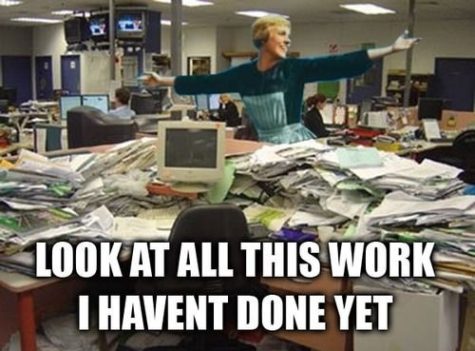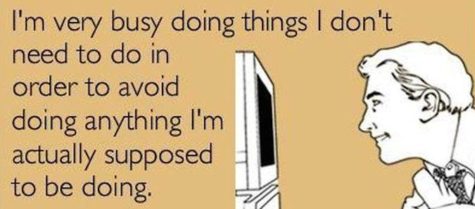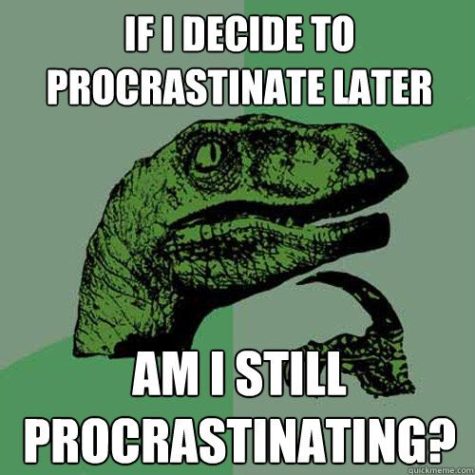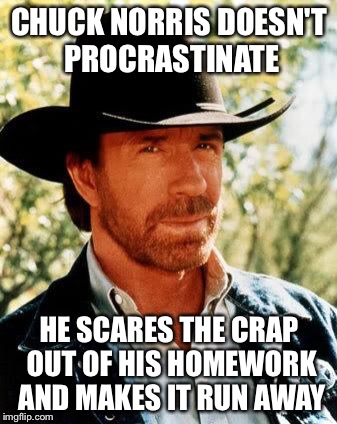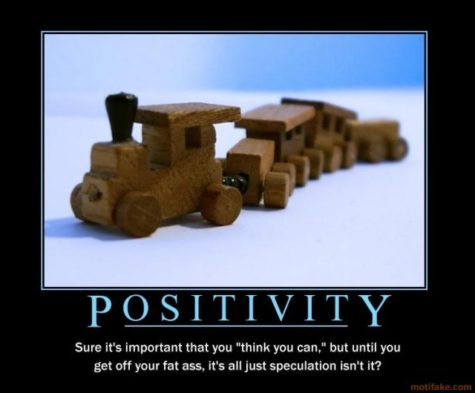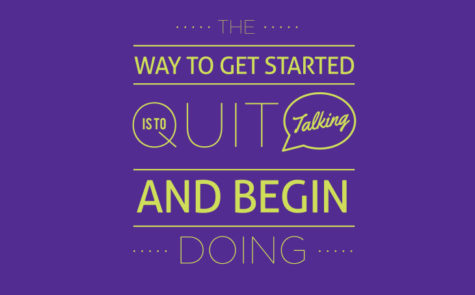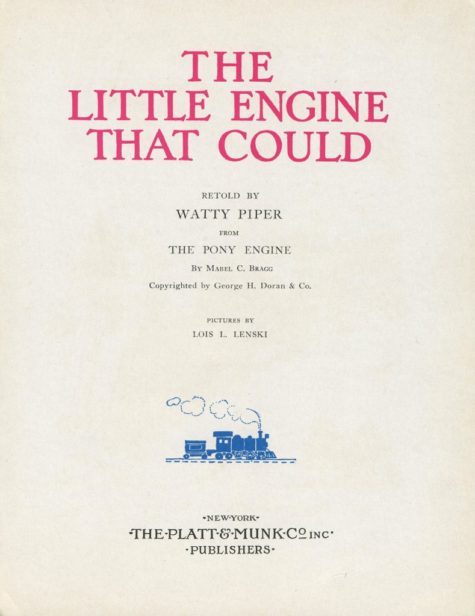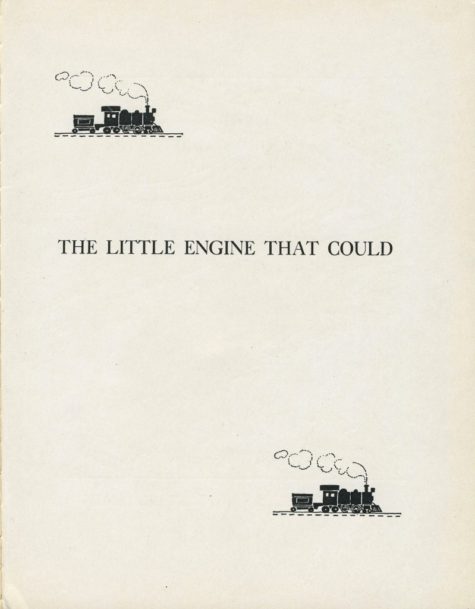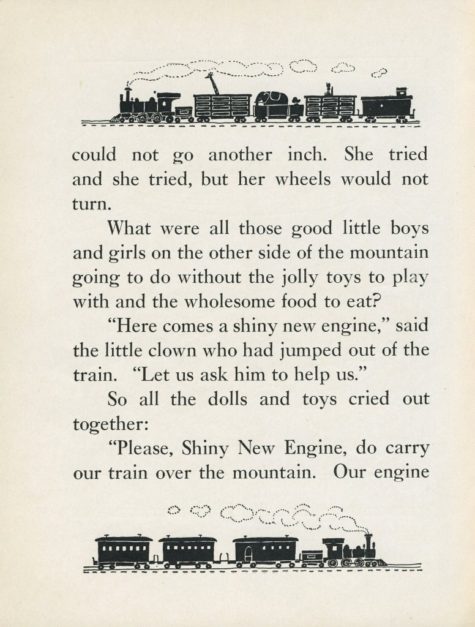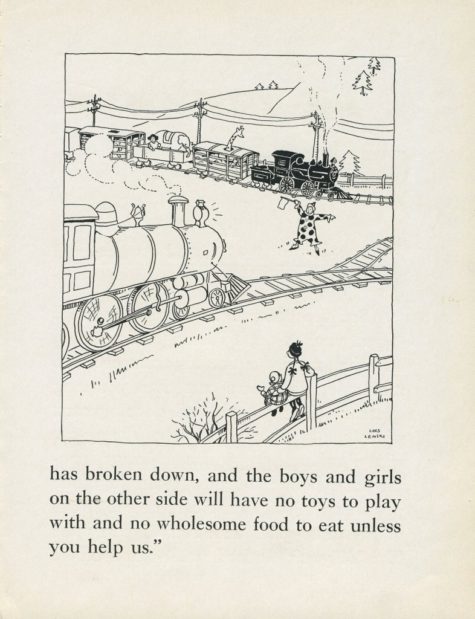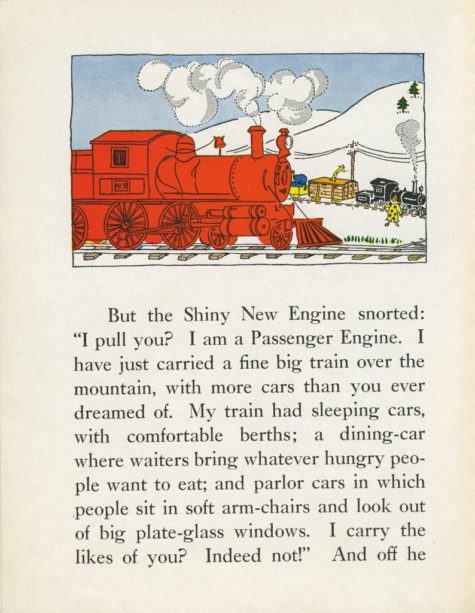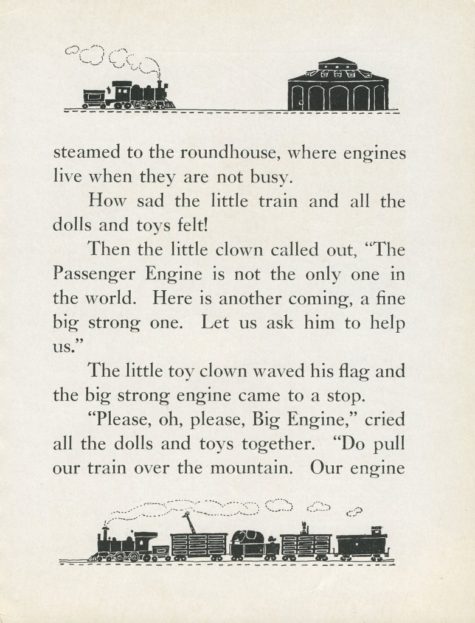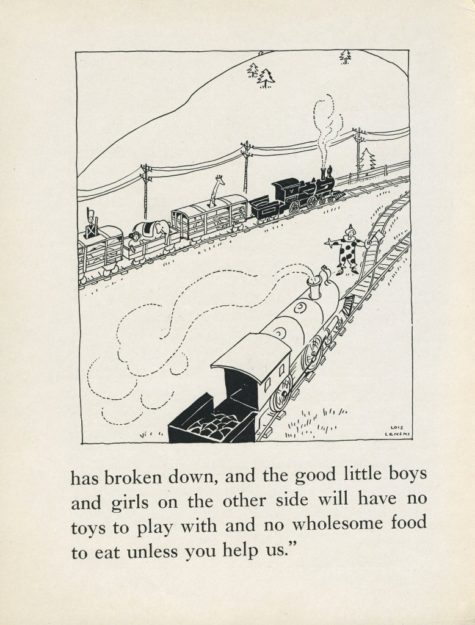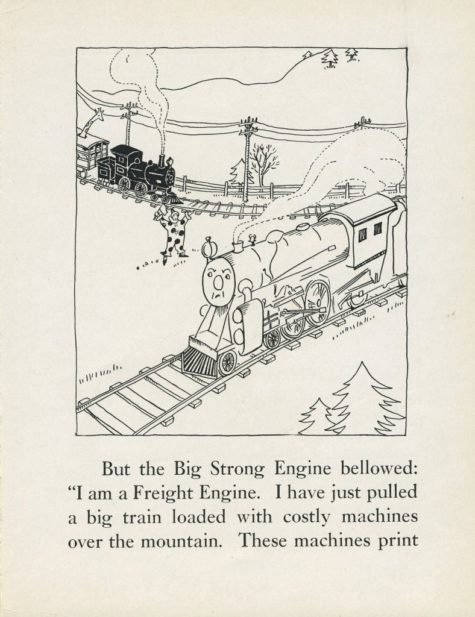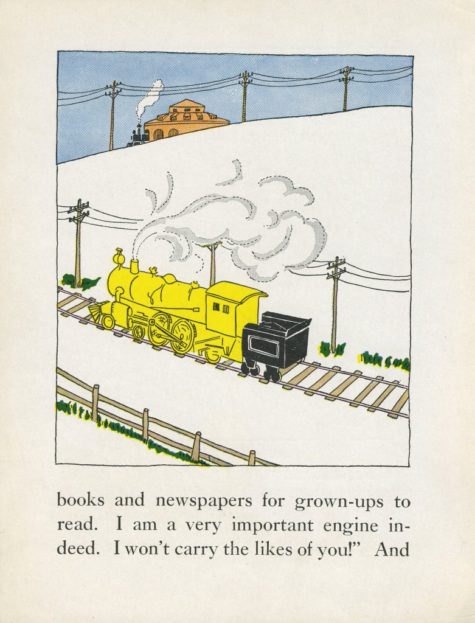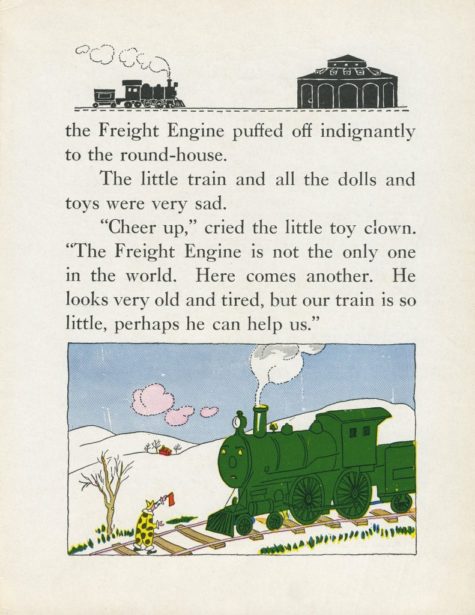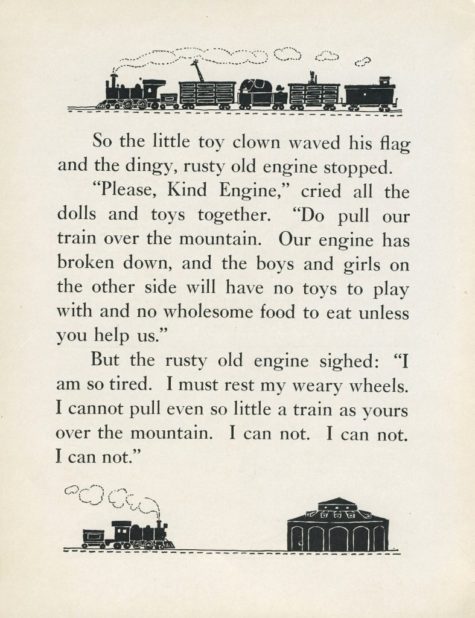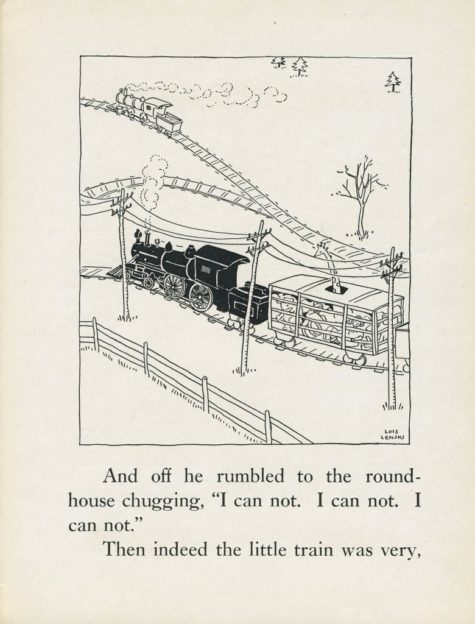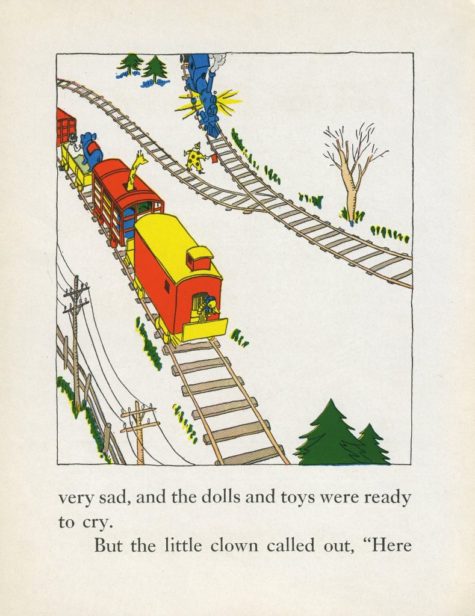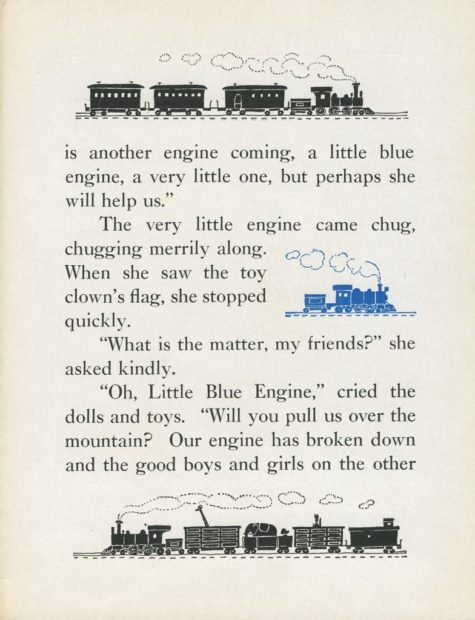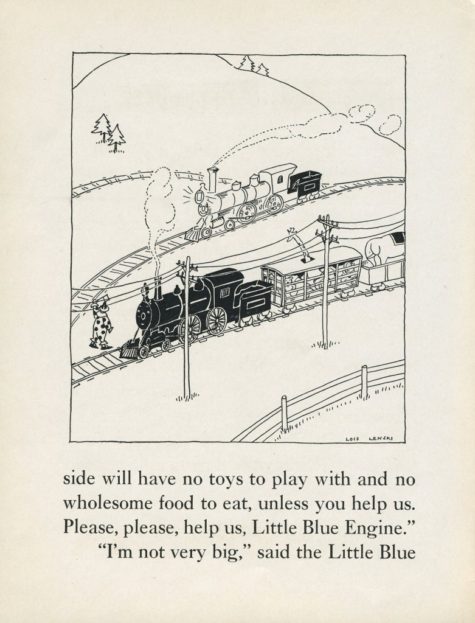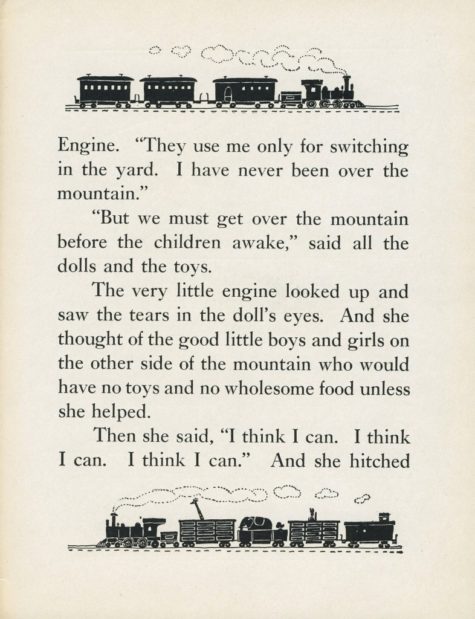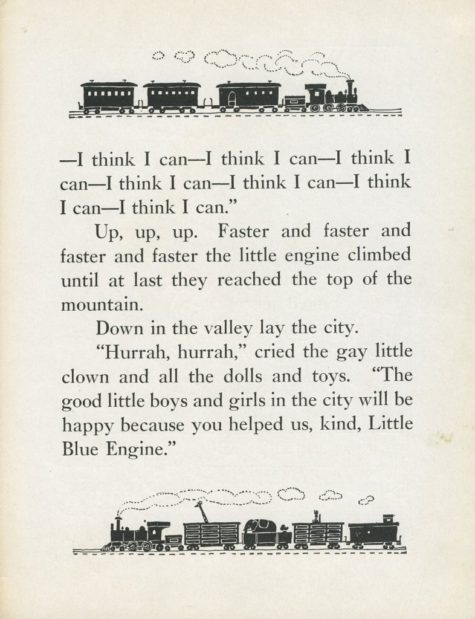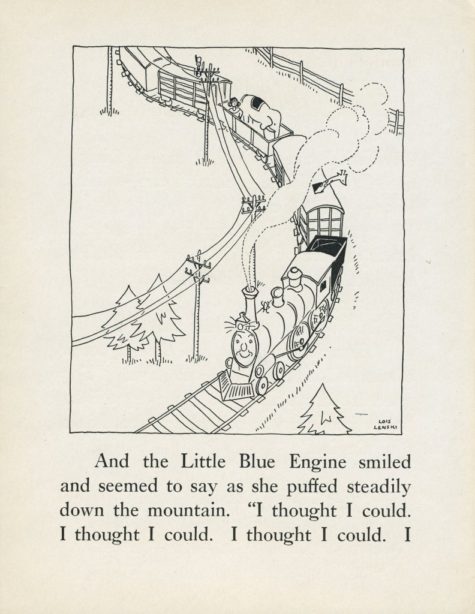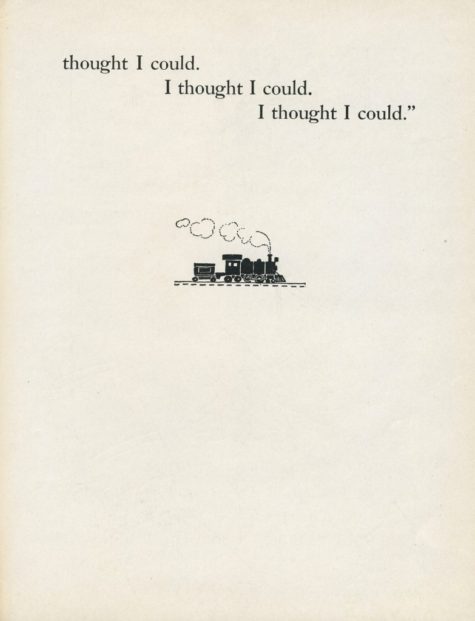I Think I Can
Oops! Where did the day go?
I found this great article on procrastination at Psychology Today.
When it comes to self-sabotage, procrastination is king. Why? Because procrastination is the gap between intention and action, and it is in this gap that the self operates. The undermining behavior lies in not closing the gap.
We make an intention to act, the time comes, but instead of acting we get lost in our own deliberation, making excuses to justify an unnecessary and potentially harmful delay. Who makes this decision? We do. The self, in fact, sabotages its own intention.
You would think life would be easier, that the reasons and desires that motivate our intentions would also be sufficient to motivate action. But they’re not. If they were, we would be machines and there would be no such thing as volition. The self must choose to act. As conscious beings, we can not escape the self choosing what to do.
We think of procrastination as an irrational delay because our reasons for action simply aren’t sufficient to motivate action. More accurately, procrastination is a-rational, without reason—because the real issue is emotional. Although we may know intellectually what we ought to do right now, we don’t feel like doing it. So we focus on short-term mood repair: Feel good now, worry about that intention later. Short-term gain, long-term pain.
With procrastination, we delay taking action longer than we know we should. In the case of chronic procrastination, we waste time that we can’t afford to waste. We can actually wind up wasting our whole lives.
There are three basic reasons we procrastinate:
One:
We most commonly procrastinate on things we find aversive. We put off things we don’t like to do or that upset us in some way. Which makes sense—except that in life, we regularly face tasks we’d rather not do but really have to do. So the first thing we need to do is recognize that our procrastination is all about what psychologists Dianne Tice and Ellen Bratslavsky have called “giving in to feel good.”
A challenging or aversive task at hand makes us feel uncomfortable. We don’t want to tolerate the negative emotions. We want to feel good now. So we give in to feel good by putting off the task. In the end, however, the delay sabotages our long-term goals.
Two:
Second, we often procrastinate because our intentions are anemic—vague and weak. Of course, for some, ill-defined intentions are part of the problem, part of the self-sabotage. We don’t really feel like doing the task, so we make vague declarations like “I’ll get to that this week” or “I’ll do that later.” It’s impossible to regulate behavior against such a poorly defined standard.
Three:
Third, we’re easily distracted, and some of us are highly impulsive. “It will take me only a minute to check my email, update my Facebook page, find the recipe, read that blog….” Oops, where did the day go?
In a world dictated increasingly by the economics of attention, we have to be careful where we invest ourselves. There are only so many minutes in a day, in a lifetime, to which we can give attention. The whole world is competing for our attention with marketing designed especially for each of us. It’s personal, seductive, and distracting.

Self-deception is the handmaiden of procrastination. We don’t feel like acting now, but we don’t like the tension or dissonance it creates in us. So, we deceive ourselves—or try to (the guilt of procrastination indicates that self-deception isn’t always effective).
We tell ourselves, “I’ll feel more like it tomorrow” or make anemic intentions, or don’t remove distractions that we know undermine our work. We create little white lies as we wait for the muse to inspire us or the right mood to motivate us. But deep down we know they’re excuses. To end the self-sabotage of procrastination, it’s essential to stop the self-deception.
Overcoming Procrastination
One of the simplest and most effective solutions is to just get started—anywhere on a task. The moment you think “I’ll feel more like doing this later” or “I work better under pressure,” recognize that you’re just about to procrastinate—to give in to feel good.
Don’t think too far ahead. Just aim for a little progress. Research indicates that establishing a low threshold to task engagement fuels motivation and changes perception of the task. You’ll find it’s not as bad as you thought, and “a task begun is a task half done!”
How to transform feeble intentions into effective plans for real action? We need to move past general goal intentions to specific intentions for action: “In situation X, I will do behavior Y to achieve sub-goal Z.”
Such predecision to act increases success by shifting the cue for action to the environment. When situation X arises, we don’t have to rely on further thought and planning; it’s more about responding. Tell yourself exactly when and where you will act.
The solution to distraction lies in recognizing what distracts us and then either deciding to eliminate the menace (“Shut off Facebook while I’m at the computer”) or declaring an intention to indulge it at a specific time once some work gets done. Again, research indicates that a little strategic planning helps “pre-empt that which tempts!”
Acting in a timely manner on tasks requires active choice and the exercise of will. Recognize the enemy within and you’ll move forward doing what you intended, becoming the person you want to be.
LOL!
Slow But Steady
Watching her arduous journey back to the ocean,
all I could hear in my head was:
“I think I can… I think I can… I think I can…”
Positivity
Here is a little “photo essay” to get us motivated:
POSITIVITY
Sure it’s important that you “think you can,”
but until you get off your fat ass, it’s all just speculation isn’t it?
A ship in harbor is safe…
but that is not what ships are built for.
The journey of a thousand miles begins with a single step.
~Lao Tzu
Success is a staircase,
not a doorway.
The way to get started is to quit talking and begin doing…
The Original Story
This is an early version of the story that became known as The Little Engine That Could. It was published 8 April 1906 in the New York Tribune. As you can see, it has changed quite a bit over the years.
Story of the Engine that Thought It Could
by Rev. Charles S. Wing
In a certain railroad yard there stood an extremely heavy train that had to be drawn up an unusually heavy grade before it could reach its destination. The superintendent of the yard was not sure what it was best for him to do, so he went up to a large, strong engine and asked: “Can you pull that train over the hill?”
“It is a very heavy train,” responded the engine.
He then went to another great engine and asked: “Can you pull that train over the hill?”
“It is a very heavy grade,” it replied.
The superintendent was much puzzled, but he turned to still another engine that was spick and span new, and he asked it:”Can you pull that train over the hill?”
“I think I can,” responded the engine.
So the order was circulated, and the engine was started back so that it might be coupled with the train, and as it went along the rails it kept repeating to itself: “I think I can. I think I can. I think I can.”
The coupling was made and the engine began its journey, and all along the level, as it rolled toward the ascent, it kept repeating to itself: “I —think —I can. I —think —I— can. I —think— I —can.”
Then it reached the grade, but its voice could still be heard: “I think I can. I—– think—–I—–can. I —–think—– I—– can.” Higher and higher it climbed, and its voice grew fainter and its words came slower: “I ——-think ——–I——-can.”
It was almost to the top.
“I ———think”
It was at the top.
“I ———can.”
It passed over the top of the hill and began crawling down the opposite slope.
“I ——think——- I—— can——I—– thought——I——-could I—– thought—– I—– could. I thought I could. I thought I could. I thought I could.”
And singing its triumph, it rushed on down toward the valley.
The Little Engine That Could
Because this project is based, at least in part, on this little book, I thought it would be fun to post the 1930’s version, in its entirety right here, right now.
This is what the Amazon review had to say about the book: The unknowing progenitor of a whole generation of self-help books, Wally Piper’s The Little Engine That Could is one of the greatest tales of motivation and the power of positive thinking ever told. In this well-loved classic, a little train carrying oodles of toys to all of the good boys and girls is confronted with a towering, seemingly impassable mountain.
As nicely as they ask, the toys cannot convince the Shiny New Engine or the Big Strong Engine–far too impressed with themselves–to say anything but “I can not. I can not.”
It is left up to the Little Blue Engine to overcome insurmountable odds and pull the train to the other side. The Little Engine That Could is an entertaining and inspirational favorite, and the Little Blue Engine’s rallying mantra “I think I can–I think I can” will resonate for a lifetime in the head of every child who hears it.
Here it is, the whole entire story, every page:
- Radical Self Care Project Overview by shirleytwofeathers - No Comment
- Radical Self Care Image Gallery by shirleytwofeathers - No Comment
- It’s A Wrap by shirleytwofeathers - 3 Comments
- Something To Consider by shirleytwofeathers - 1 Comment
- Nurturing Your Precious Self by shirleytwofeathers - 3 Comments
me: Make Your Own Violet Fire
Abdulrahman: Money Chant – Very Fast
Shirley Twofeathers: It’s A Wrap
Daniel Knirs: It’s A Wrap
Shirley Twofeathers: It’s A Wrap
